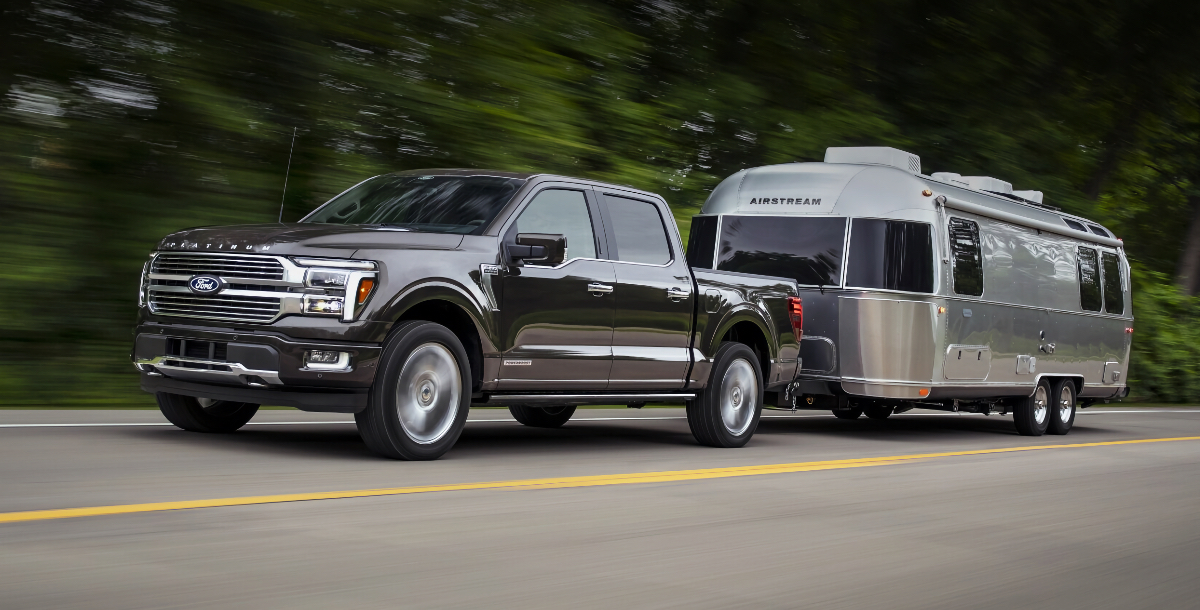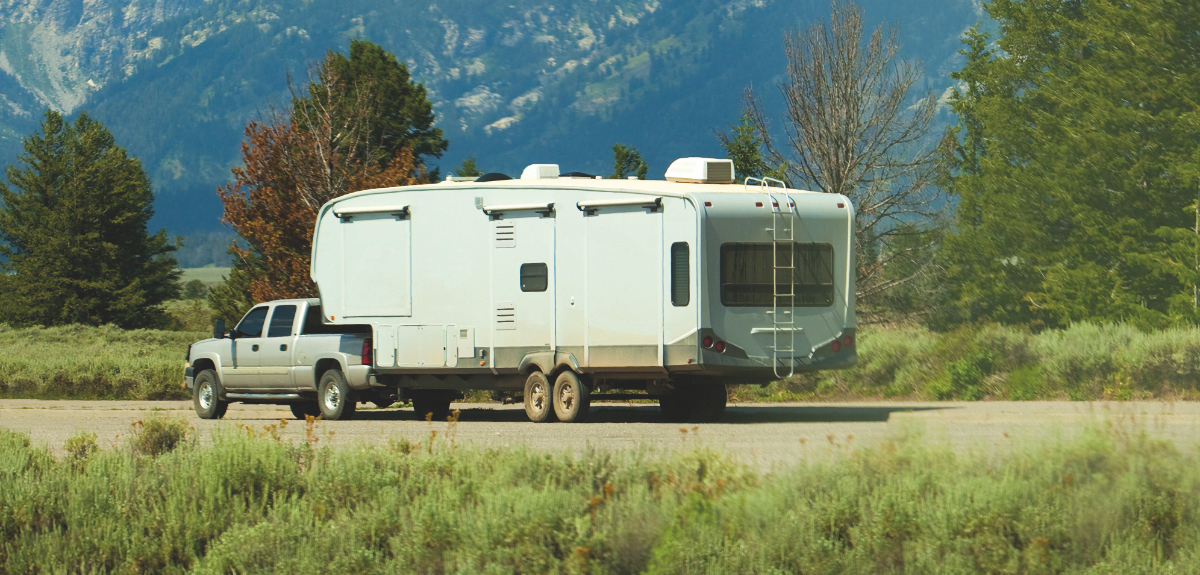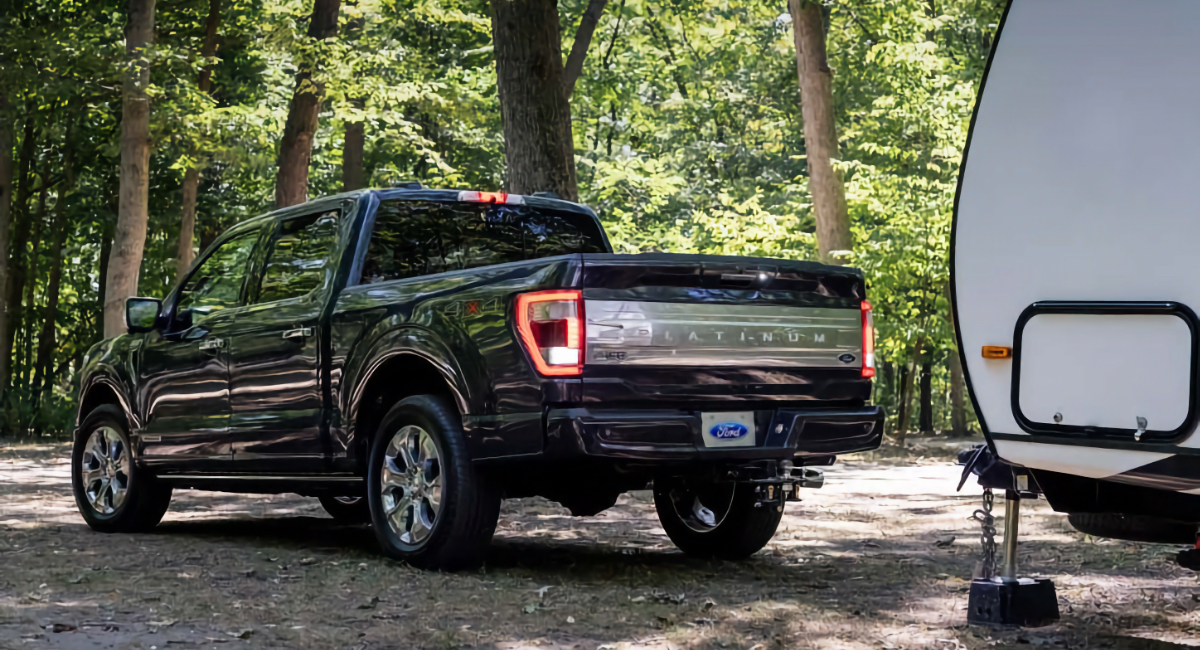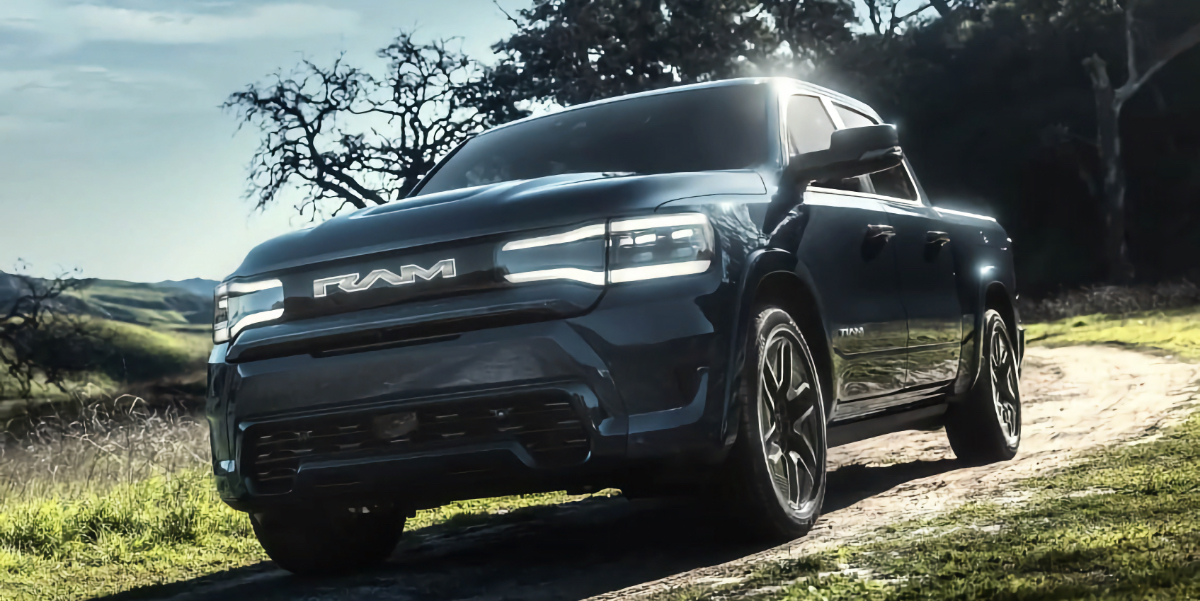Can a Trailer Camera Really Make Towing Easier?
Taking the Anxiety Out of Towing
Image Caption: Towing a trailer of any size can benefit from a camera, but it's not a cure all for your towing woes. (Image from Camping World)
Let’s be honest about this: driving a vehicle that’s pulling a really long trailer isn’t easy, and it takes a lot of practice to get comfortable with it. And the practice you put into getting better at driving really pays off. But let’s not pretend like the pull-through sites at campgrounds aren’t a lot more desirable than the back-in spots, simply because backing up a massive trailer isn’t just a challenge—it’s sometimes infuriating, especially if you’re inexperienced.
There are some gadgets that can help make this easier, namely trailer cameras. There are several models that do different things, so let’s look at a few versions and see what they do.
How Do Trailer Cameras Work?
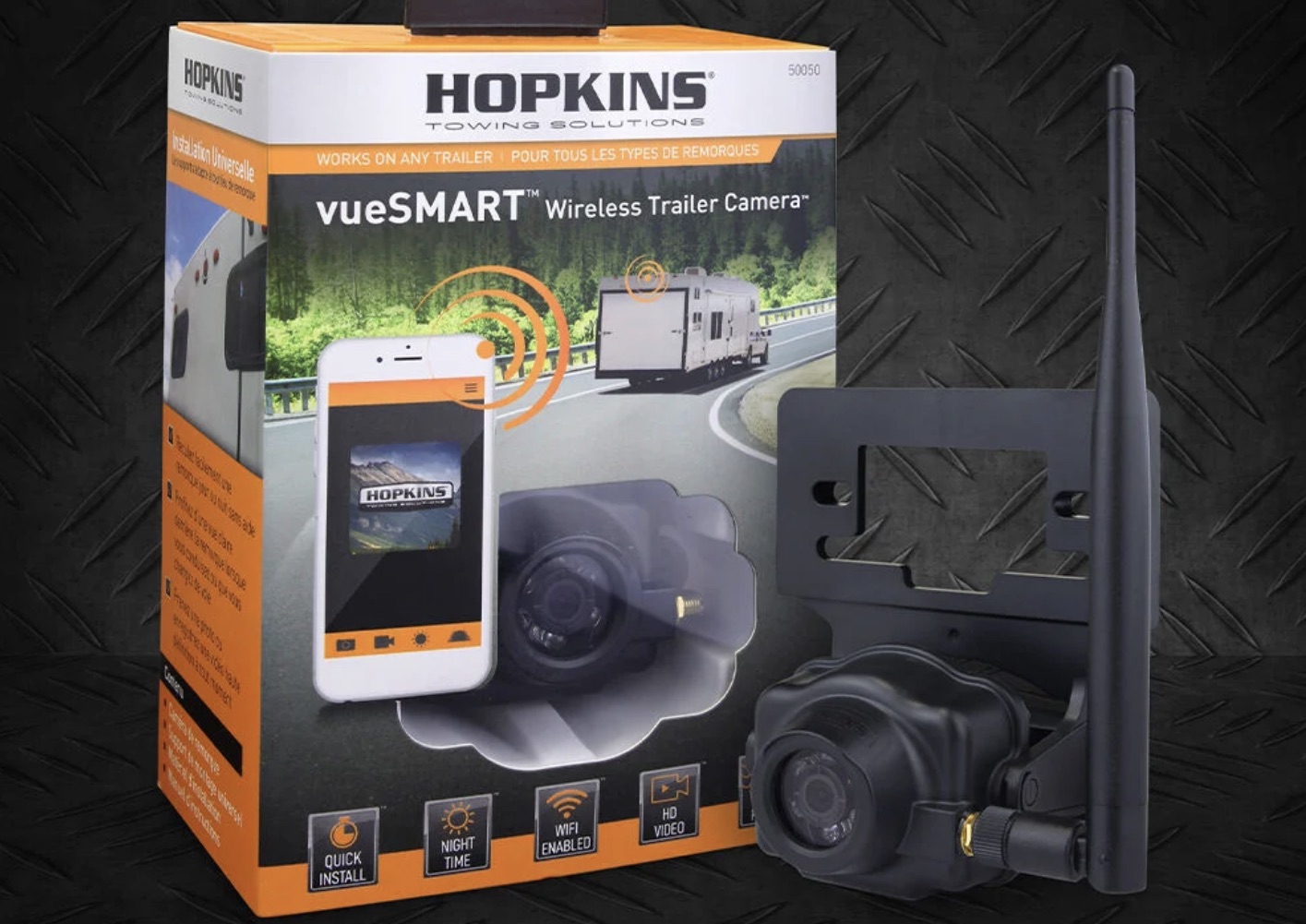
This Hopkins wireless trailer camera is a smart solution for your rig. (Image from Camping World)
Some RVs, most notably higher-end coaches and Class Bs and Cs, often come with backup cameras installed from the factory. These are no different than what you might experience with a car or other vehicle.
When the RV is in reverse, it activates the camera, and you’re able to see what’s behind you on a screen near the cockpit. This is particularly nice because many of these RVs don’t have a clear window or view out the back. You’re relying exclusively on your side mirrors to see behind you.
On travel trailers and fifth wheels, though, the problem is even more pronounced. Not only can you not see behind you thanks to a large trailer, but it’s also more difficult to see around you via your side mirrors.
Aftermarket trailer cameras attach to the back of a trailer and, with the use of a transmitter, you’re able to see what’s behind you on a dash-mounted display. Some cameras use WiFi and stream the view behind the trailer to a smartphone. These cameras also offer a range of between 120 degrees and 152 degrees, on average.
In short, it’s a lot like having a digital rearview mirror.
What About Making the Trailer Disappear?

The latest iteration of the Chevrolet Silverado offers 15 total cameras and what the company calls Transparent Trailer view. (Image from Camping World)
Recently, Chevrolet began advertising a new camera system on some Silverados. It’s often called Transparent Trailer, and claims to make the trailer “invisible.” The camera itself is mounted on the truck, so how can it see the road behind you?
As it turns out, the ProGrade Trailering Camera System does include a camera that attaches to the trailer. It also stitches together other camera angles from the system’s 15 total cameras. So it doesn’t make the trailer actually “invisible,” but does allow a wide variety of better vision into the road around you.
The biggest perk to the Chevy system is the various other camera angles that change as obstacles appear in the road. Not only do you see behind the trailer, but you can see on either side of it as well. It’s a more comprehensive solution, but one that you have to get through Chevrolet or GMC.
Do Trailer Cameras Make Towing Easier?
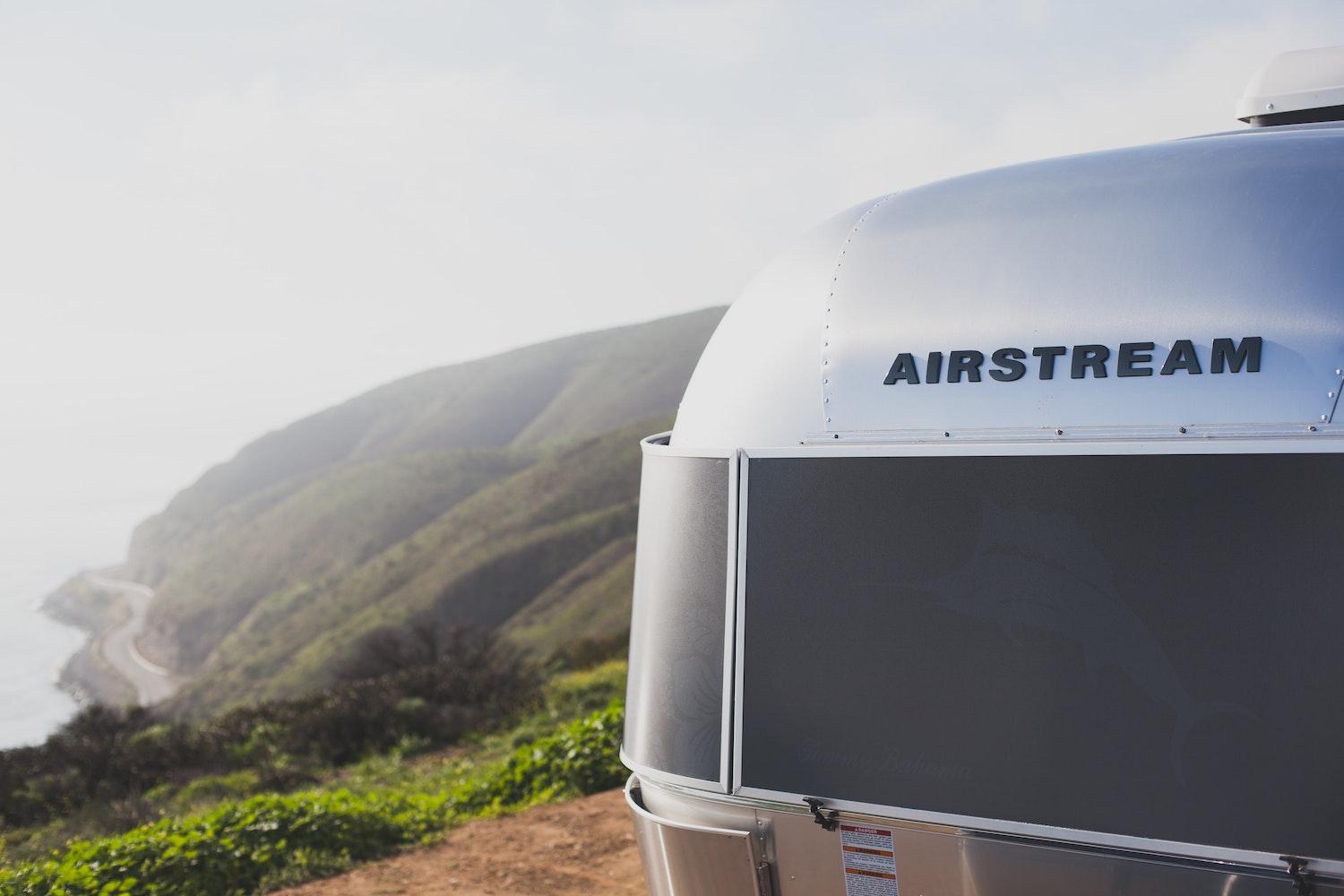
Tight campsites can be made a little easier to get into with the help of a trailer camera. (Image from Unsplash)
So, do they make towing easier? It’s not really that simple. It does, however, make towing safer, by giving you another vantage point to know more about your surroundings. Anytime you’re able to see more of your surroundings when you’re in a large vehicle, the better and more defensive your driving will be.
Let’s look at a few perks.
Vision on the Road
When you’re between locations, you’re going to be one of the larger vehicles on the road—or at least one of the longest. This makes it all the more difficult when you’re changing lanes or trying to turn. A trailer camera makes it easier to see if there are cars behind you or in your blind spot, which is larger thanks to the towable.
Backing Up
Before you ever get to a campsite, you may find yourself stopping at a restaurant for food, or a store to stock up. When you go to leave, you’ll have to back the trailer up in order to leave. Backing up is difficult enough, but it gets more difficult when you realize you can’t see what’s behind you. Just like a back-up camera on a car, these can help make sure you don’t sideswipe another vehicle (or worse).
Setting Up Camp
Pull-through sites come in high demand at RV campgrounds. So much so that they often cost more. You can save yourself some money if you get particularly good at backing up a lengthy trailer, and a trailer camera will help with that. You’ll still want help from a spotter, but a nice angle on the back of your RV can make getting into particularly tricky and slim spots that much easier.
Trailer cameras come with a lot of perks. They give you better insight into the area around you. It’s still up to you to be cognizant of the road and other drivers.

